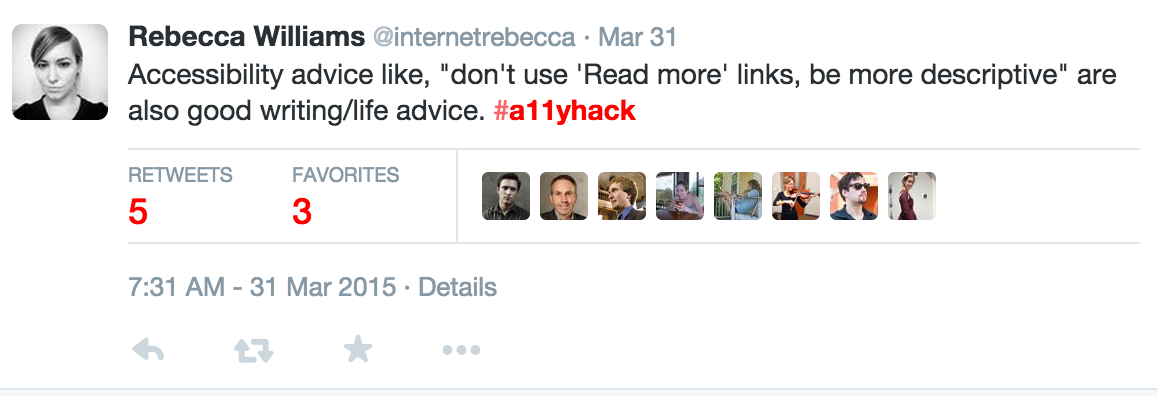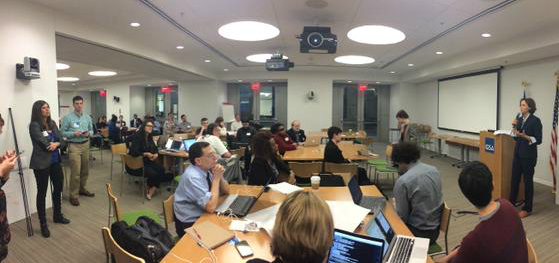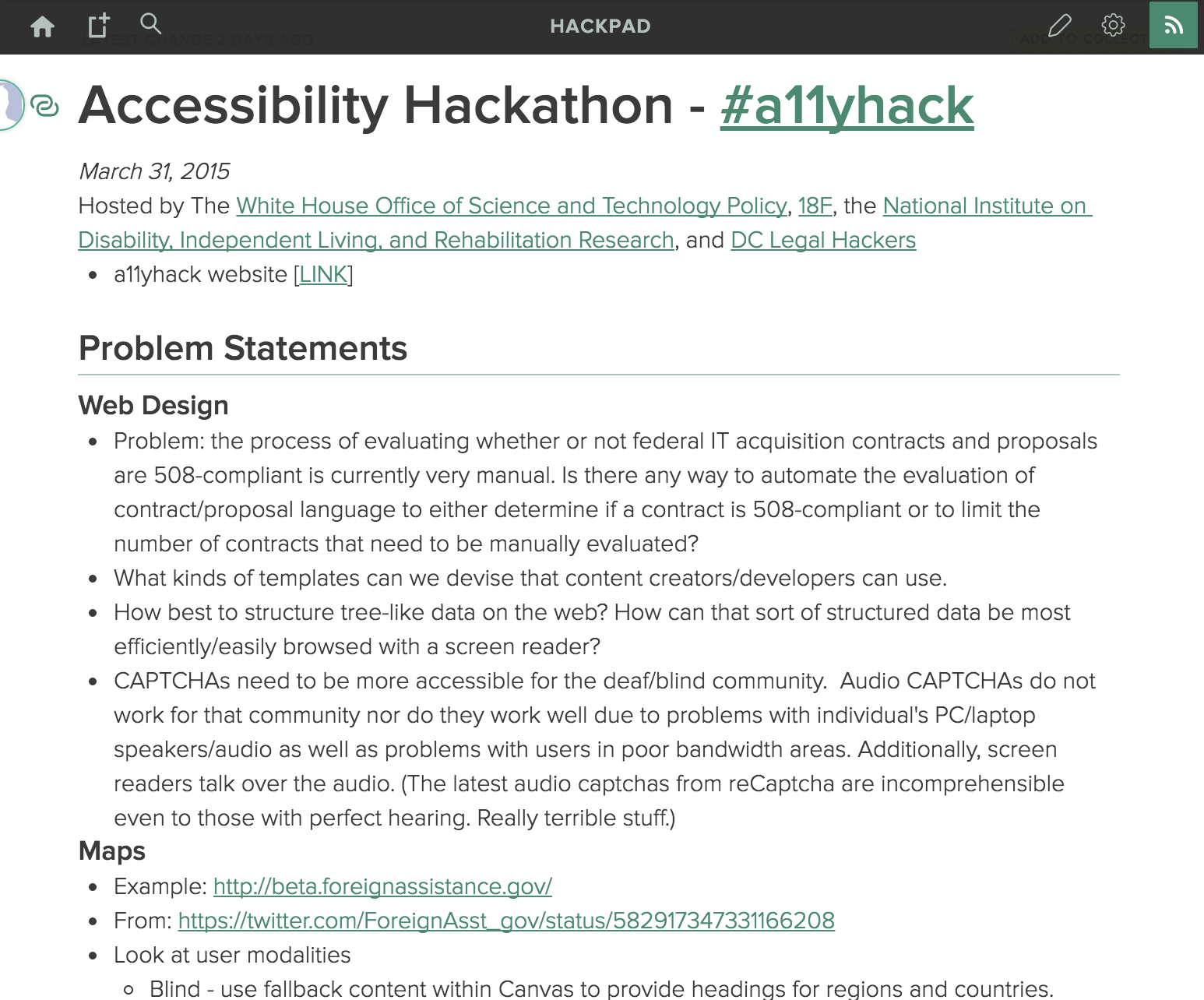Improving accessibility and 508 awareness is one of 18F’s ongoing goals. In support of this goal, we recently hosted a11yhack, a website accessibility hackathon.
Section 508, an amendment to the United States Workforce Rehabilitation Act of 1973, was enacted to eliminate barriers in information technology. Federal websites are, by law, designed to be accessible to everyone – individuals who are visually impaired, hearing impaired, or have mobility issues – and we want you to help us develop shareable solutions to some digital accessibility problems facing Government and users today.
Aimed at accessibility (a11y) users, developers, policy makers, and technologists, the hackathon featured experts discussing their work, networking opportunities, and the opportunity to make a real difference on these issues via general project collaboration and reviews of different websites (including tips for improving accessibility). The White House Office of Science and Technology Policy, the National Institute on Disability, Independent Living, and Rehabilitation Research, and DC Legal Hackers also sponsored the event.
About 80 people attended the all-day event, and many of the organizers and participants shared that it was a huge success.
“All the presenters were great and I was really happy the National Federation of the Blind could come and help us out. Their insight was inspiring and we got a lot of great feedback from them,” said Nick Bristow, one of the event organizers.


“The hackathon itself was also successful. Megan Smith loved the 508 Procurement Playbook that was put together, and the video CAPTCHA was great. The basic idea was to authorize a person by asking them to perform actions in front of a camera, such as looking left then right, holding up a certain number of fingers, etc. Some members from the NFB were big fans of this idea,” Nick said.
Alan deLevie, another organizer, appreciated the diversity of attendance, saying, “It was great to have so many people who use assistive technology, developers, and policy people all in the same room. Everyone seemed quite excited to be working on this important issue.” He added, “When we talk about using technology to help people in their daily lives, I can’t think of many areas with more impact than accessibility. Unfortunately, accessibility is something that is easy to overlook if you don’t need it. But I hope that the hackathon helped raise awareness and get the message across that accessibility is something we all can improve.”
Jackie Kazil, another organizer, said several aspects of the gathering stood out to her, including alternatives to Web practices such as video CAPTCHA for visually impaired users or the calls to action for policymakers, technology companies, and users to get together to recognize and/or address accessibility issues early on. She echoed the sentiments of fellow 18F colleagues who see accessibility as one of the most important aspects of web development. And that being 508-compliant is not “just about what the letter of the law says,” but includes that and considers a meaningful user experience.
And as a data scientist and a software developer, she also appreciated the emphasis on being consciously aware of user experiences throughout the project evolution process.
“The idea that often 508 is something you think about at the end of the development process, something that someone checks off a list, and if it’s not acceptable, has to be revisited, is not efficient,” she said, adding that “bringing the accessibility consideration earlier into the process is going to help improve the experience.”

Overall, everyone in attendance seemed to have a great time networking and discussing accessibility needs and concerns in the community. We’ll be doing more events like this in the future, so if you didn’t make it to this one, we hope to see you at the next.
Key links
Resources: Accessibility Resources.
Tools: Accessibility Tools.
Best Practices and Common Testing Tools: Accessibility Tools.
Hackpad: Shared notes from hackathon.
Hackathon projects:
Join or post your projects in the snapshot of the Accessibility Hackathon Hackpad.


